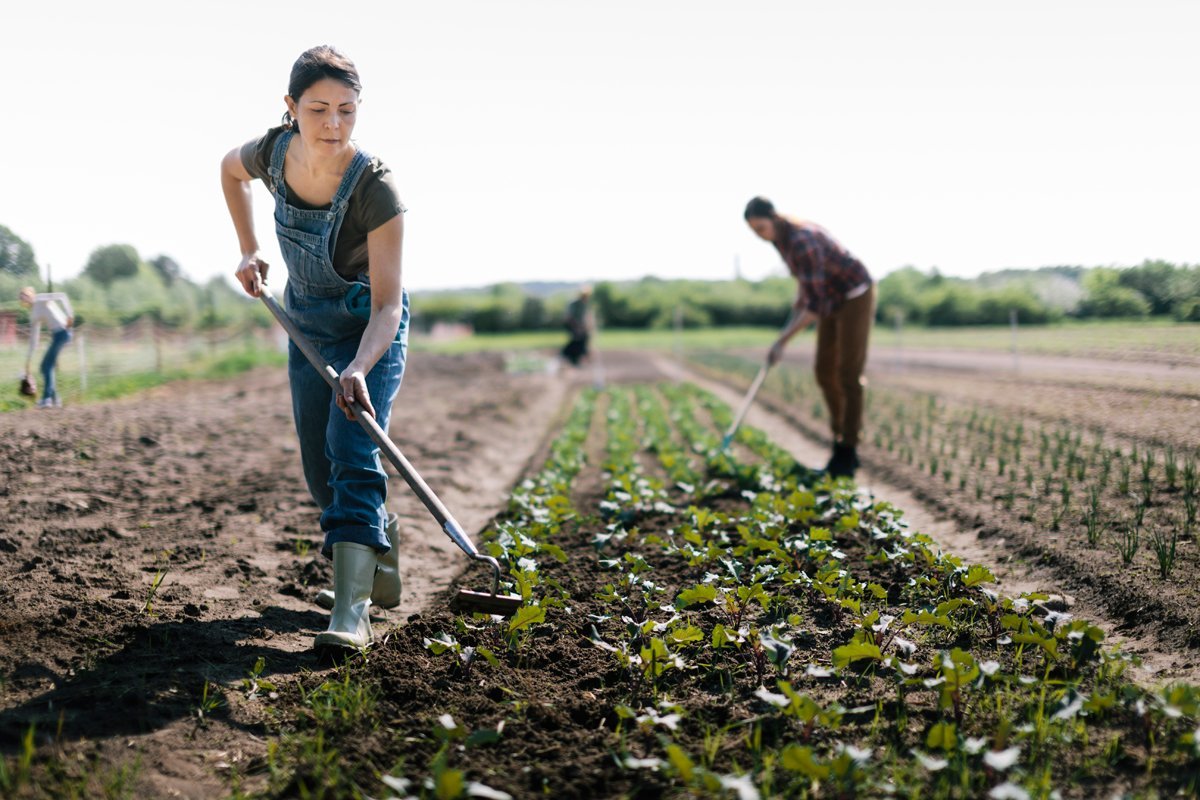
Our Cooperative Principles
Rooted in Cooperation
Food hubs are businesses that aggregate, market, and distribute local food to create economic opportunity for producers and expand access to fresh, healthy food for communities. Many farmers and ranchers—especially smaller operations—lack the resources and infrastructure they need to serve retail, institutional, and commercial foodservice customers. Food hubs help producers gain entry into these markets and reduce transaction costs for buyers by providing a single point of purchase for a consistent and reliable supply of source-identified local food.
Our food hubs are unique in that each is a farmer-owned cooperative. This means that our most important decisions—including what we source, the price we pay our farms, and who we do business with—are made democratically by our producers. And unlike for-profit food hubs and distributors that extract surpluses to pad the pockets of shareholders, all the profits we earn are shared among our farmer-members and reinvested to build equity in and sustain their collective enterprise.
What is a Cooperative?
A cooperative is an autonomous association of people who unite voluntarily to meet their common economic, social, and cultural needs and aspirations through a jointly-owned and democratically-controlled enterprise. Cooperatives respond to lack of sustainability and equity in the investor-driven economy, changing the purpose of economic activity and addressing social, cultural and environmental injustice.
Cooperative Principles
The cooperative principles are guidelines for putting values into practice—here’s how we express them.
Voluntary and Open Membership
Cooperatives are voluntary organizations, open to all persons able to use their services and willing to accept the responsibilities of membership, without gender, social, racial, political, or religious discrimination.
Our food hubs provide aggregation, marketing, and distribution services to their members. Local farmers join our food hubs to benefit from these services and make investments to build equity in their collectively owned business.
Democratic Member Control
Cooperatives are democratic organizations controlled by their members, who actively participate in setting their policies and making decisions. Those serving as elected representatives on the cooperative’s board are accountable to their fellow members, who exercise equal voting rights on the basis of one member, one vote.
If you want to know who a business really serves, just look at who’s in charge. Our food hubs exist to support local farmers and their communities. Each is governed by a board of farmer-members elected by their peers—and whether they’re farming on one acre or a hundred, everyone’s vote counts the same. This ensures that control stays in the hands of the producers at the heart of our local food systems.
Member Economic Participation
Members contribute equitably to the capital of their cooperative. Surpluses generated by the cooperative’s business activities are used to build shared reserves, expand the business, and distribute dividends to members.
Unlike capitalist firms that raise funds from outside investors with no real connection to the core activities of the business, our food hubs are owned by and accountable to the producers who depend on us. All the profits we earn are reinvested to grow our collective capacity to serve and strengthen local food systems.
Autonomy and Independence
Cooperatives are autonomous, self-help organizations controlled by their members. If they enter into agreements or partnerships, they always maintain democratic control by their members and cooperative autonomy.
Building a better food economy starts with grassroots communities of producers and consumers. By applying the values of self-responsibility, solidarity, and cooperation, we’re proving that transformative change is best led by those on the front lines of local food organizing.
Education, Training, and Information
Cooperatives provide education and training for their members and employees so they can contribute to the development of their cooperatives. And they educate the public about the nature and benefits of cooperation.
We’re advocates for cooperation among our members and in our local communities. Participatory governance teaches our farmer-members what it means to be stewards of economic democracy—and we express our cooperative advantage through a model of seamless sourcing from a synchronized community of producers.
Cooperation among Cooperatives
Cooperatives serve their members most effectively and strengthen the cooperative movement by working together through local, national, regional, and international structures.
“Principle Six” is the heart and soul of our network. By bringing together our region’s food hubs to share inventory, services, and infrastructure, we supply communities across the Northwest with fresh, local food and empower producers to break into new markets.
Concern for Community
Cooperatives work for the sustainable development of their communities through policies set and advanced by their members.
As a purpose-driven community of producers, our farmer-members adhere to a common set of sustainable production standards and hold their food hubs accountable to serving the common good of their communities.

